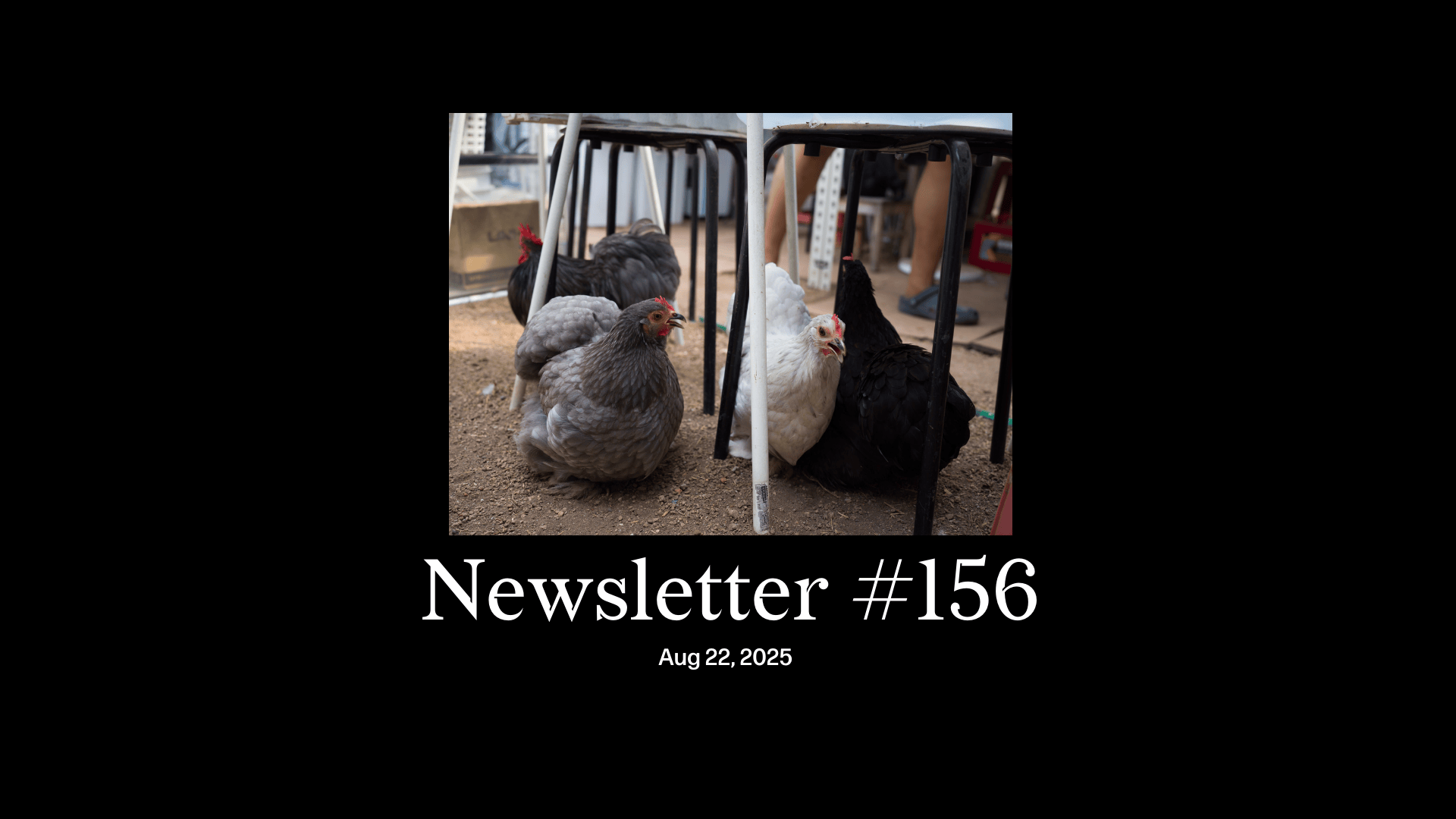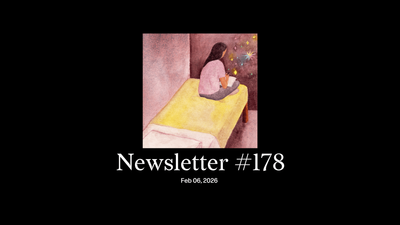Dear reader,
Mainstream news has been dominated by Lawrence Wong’s National Day Rally and vapes; and subaltern headlines by The Projector’s closure. We cover those extensively in “Singapore This Week”, our weekly digest. Other stories that caught our eye but didn’t make it in include the first death row prisoner granted clemency since 1988 (see the response from the Transformative Justice Collective); and a CNA interview of the Singapore Tourism Board team responsible for convincing artists like Coldplay and Blackpink’s Jisoo to film music videos here.
We have an important announcement about our weekly digest. We’ve decided to stop regularly publishing tech blurbs. The feedback from several of you was that they weren’t of the same calibre as our other sections, from politics to the arts. Over the past year we’ve tried polishing them, but haven’t been able to get them to a level we’re happy with. So we’ll take a temporary break. We’ll review our reader survey results next week and decide what to replace them with. As always, do reply to share your own thoughts about any of this. We’re building Jom together.
- Lawrence’s technocratic, policy-oriented National Day Rally
- What the rhetoric around new developments in Kranji and Sembawang reveals
- Why are young Singaporeans getting so much plastic surgery?
- Did Singapore get its vape policy right?
- How the aviation industry is turning to used cooking oil as a fuel
- The Royal in 1907, and the history of cinema in Singapore
- The Projector and the erasure of space
And more, in our weekly digest. Read it now.
It’s an appropriate time to tell you that today’s is a co-authored newsletter. Since this week’s essay is by me, we felt it’s better to let Abhishek Mehrotra, our head of content, introduce it.
Essay: “Farmers today” by Sudhir Vadaketh
I wonder if still got kai-lan. This occasional musing, arising sometime in the early evening when the veggie trays in my neighbourhood NTUC have almost emptied out, is the closest I usually come to thinking about, let alone understanding, the source of our food and those who grow it. It’s a bit sad. Although, in my defence, and perhaps in yours too, dear reader, modern supply chains are so robust, yet so far-flung; and consumers so removed from growers that the whole thing may well be running on magic as far as the layperson is concerned. The disconnect is especially acute here in our tiny, hyper-urbanised, high-rise technotopia. Singapore has one solitary percent of agricultural land; more than 90 percent of our food is imported, from over 180 countries.
You can then imagine my curiosity when Sudhir proposed a story profiling Kevin Lee, Nicholas Chee (Nic) and Chng Ying Tong (YT)—cultivators with small plot-share farms at City Sprouts Henderson, a social enterprise. Farmers, in Singapore? Farms, in Henderson? From the get-go, Kevin’s infectious enthusiasm, captured so vividly by Sudhir, drew me in.
“So nascent are the shoots that when I visited, he started showing me around like an expectant parent, only to surprise himself. ‘See this chilli [plant] I grew…oh, fuck! There’s a chilli!...I saw little ones over there, oh fuck, I didn’t realise that one. That’s my first chilli [from seeds].’ It was a special moment for the chilli fiend. He also pointed out basil, honey dew and zucchini.
When we got to the curry tree, I recognised its leaves, so common in South Asian cuisine.
‘Have you had curry fruit before?’
‘Curry leaves? Ya.’
‘Fruit.’
‘Oh, the fruit, no.’
Kevin plucked off a purple berry and popped it in my mouth. That distinctive aroma filled my mouth in a new way. ‘Teaching an Indian about curry,’ Kevin laughed.”
Meanwhile, Kevin’s neighbours, Nic and YT, teach Sudhir, and us, about putting waste to use. “I was drawn to the Meiji bottles, having never seen such a jerry-rigged hydroponics set up. The racks cost S$10 on Carousell or S$39 new, Nic told me. ‘It’s a nine-plant solution in an 80cm2 space.’ …They’ve also been experimenting with tomatoes, ‘what everybody seems to want to grow’; and ‘wartime foods’ like tapioca and sweet potatoes. It was my first time seeing one growing in water, outside of the ground, the sweet potato somehow balanced in the bottle’s mouth, its leaves reaching for the sky, and its thread-like roots swaying gleefully in plain water.”
Nic advocates for a farm setup in every school, with dedicated agricultural time for every child. “‘We need to change the way Singaporeans are being brought up,’ Nic said, noting that Lawrence Wong, new prime minister, has been hinting at similar things. ‘I’ll give him a chance.’”
Sudhir uses these stories—amazing on their own—to spotlight larger themes. Kevin’s adaptation of a Fijian staple, made from ingredients he has grown, for the Singaporean palate sparks a meditation on identity and belonging; Nic and YT’s experiments, with crowd-sourced knowledge from TikTok as well as “the wisdom of HDB uncles”, become gateways to reclaiming the gotong-royong spirit, and “to re-establish our connections to land, and our relationships with other people and communities.” Read Sudhir’s essay now, the last one of our ecological trio published in Jom’s print issue last year.
Jom tanam,
Abhishek Mehrotra and Sudhir Vadaketh
Jom
If you’ve enjoyed our newsletters, please scroll to the bottom of this page to sign up to receive them direct in your inbox.







